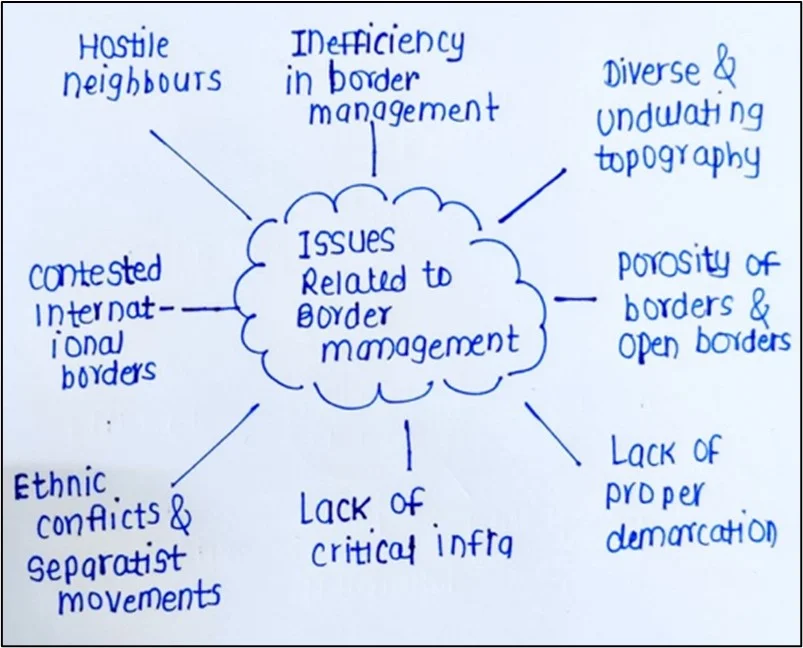Answer:
| Approach:
Introduction
- Introduce, acknowledging the complexity of border area management in India and the necessity of denying local support to militants and managing favourable perceptions among locals.
Body
- Discuss strategies to deny local support to militants.
- Suggest ways to manage favourable perceptions among locals.
Conclusion
- Conclude, reinforcing the importance of a comprehensive approach in effective border area management, involving local community welfare and their active participation in maintaining peace and security.
|
Introduction:
Effective border area management in India, characterized by diverse geographies and cross-border issues, requires multifaceted strategies, including denial of local support to militants and fostering positive perceptions among locals.
Body:
Listed below are the steps required to be taken to deny local support to militants:
- Robust Intelligence Network: A strong intelligence network, like the one used during the 2016 Uri attack, can preempt militant activities.
- Development Initiatives: Government projects like Border Area Development Programme (BADP) help in improving the livelihoods of border communities, reducing their vulnerability to militant influence.
- Civic Action Programmes: Initiatives like ‘Sadbhavana’ by the Indian Army help to bridge the trust deficit between locals and security forces.
- Strict Border Controls: Effective management like fencing and technological solutions implemented at the Punjab-Pakistan border can deter cross-border militant activities.
- Conflict Resolution Mechanisms: Mechanisms to resolve local grievances can reduce militant support, similar to the Bodo Peace Accord in Assam.

Ways to manage favourable perceptions among locals:
- Community Engagement: Programs like ‘Bharat Darshan’ for the youth of Jammu & Kashmir foster a sense of national integration.
- Local Recruitment in Security Forces: Including locals in security forces like Assam Rifles in the Northeast promotes a sense of belonging and cooperation.
- Cultural Sensitivities: Respecting cultural practices helps build trust, as demonstrated by the CRPF’s efforts to learn the Kashmiri language.
- Transparency in Operations: Transparency in security operations, like the investigation of the Shopian case in J&K, fosters trust among locals.
Conclusion:
An amalgamation of proactive intelligence, developmental initiatives, cultural sensitivity, transparency, and community engagement holds the key to effective border area management. Ensuring the welfare of border communities can result in their active participation in maintaining peace and security, thereby countering militancy effectively.

